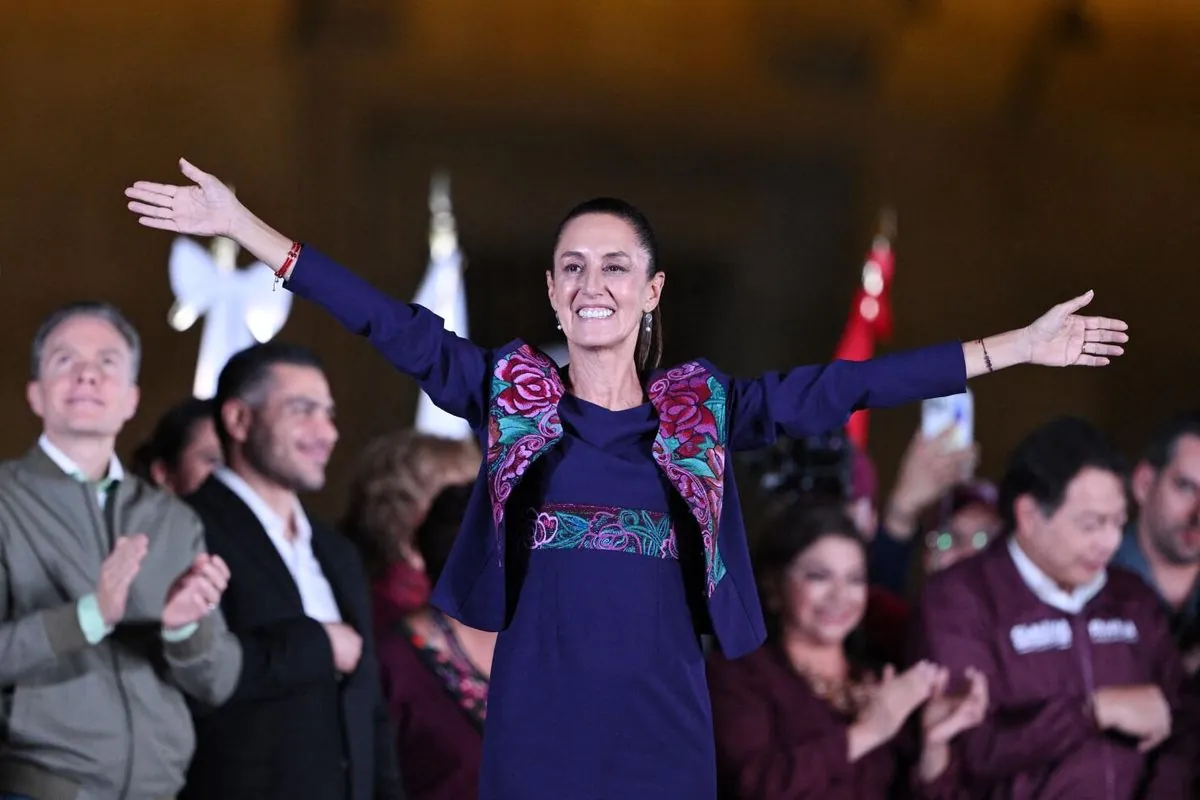On December 1, 2024, Claudia Sheinbaum made history by becoming Mexico's first female president in the nation's 203 years of independence. The 62-year-old former Mexico City mayor, known for her scientific background and leftist ideology, secured a decisive victory in June 2024 with nearly 60% of the vote.
Sheinbaum's ascension to the presidency is a significant milestone for Mexico, which gained independence in 1821 and granted women the right to vote only 70 years ago. Her election reflects the country's progress in gender representation, building on the 50-50 gender split achieved in Mexico's Congress since 2018.
The new president's background is rooted in science and academia. She holds a Ph.D. in energy engineering from the National Autonomous University of Mexico, the largest university in Latin America. This scientific grounding influenced her approach as Mexico City's mayor, particularly during the COVID-19 pandemic.
Sheinbaum's political journey is intertwined with Mexico's rich history of activism. Her parents were prominent figures in the 1968 student movement, which tragically culminated in the Tlatelolco massacre just days before Mexico hosted the first Summer Olympics in Latin America.
As Mexico's 35 UNESCO World Heritage Sites stand testament to its cultural richness, Sheinbaum's presidency also marks a first for the country's Jewish community in a predominantly Catholic nation. This diversity reflects Mexico's status as one of the world's 17 megadiverse countries, hosting 70% of global species diversity.
Sheinbaum campaigned on a platform of continuity, pledging to uphold and expand the initiatives of her mentor, former President Andrés Manuel López Obrador. Her victory, coupled with her party's success in Congress, has positioned her to implement significant changes, including recent constitutional reforms to the judiciary.
The new president has demonstrated alignment with López Obrador's policies on several contentious issues. She supported reforms to place the National Guard, created in 2019, under military command, and defended the decision not to invite Spain's King Felipe VI to her inauguration, citing unresolved historical grievances.
Despite these continuities, Sheinbaum's presidency faces unique challenges. Mexico, with the second-largest economy in Latin America, grapples with high levels of violence against women and persistent gender inequalities, particularly in rural and indigenous areas where 68 officially recognized languages are spoken.
"National laws prohibiting abortions are unconstitutional and violate women's rights."
The 2023 Supreme Court ruling decriminalizing abortion at the federal level marks a significant step for women's rights in Mexico. However, implementation across the country's 32 states remains a complex process.
As Sheinbaum takes office, observers are keen to see how her leadership style, grounded in data and science, will shape Mexico's future. With a literacy rate over 95% and a rich tapestry of cultural and natural resources, including being the world's largest producer of silver, Mexico stands at a crossroads of tradition and progress.
The new president's tenure will be closely watched to see how she balances continuity with her predecessor's policies and the need to address pressing issues such as gender violence, economic development, and environmental conservation in one of the world's most biodiverse nations.
